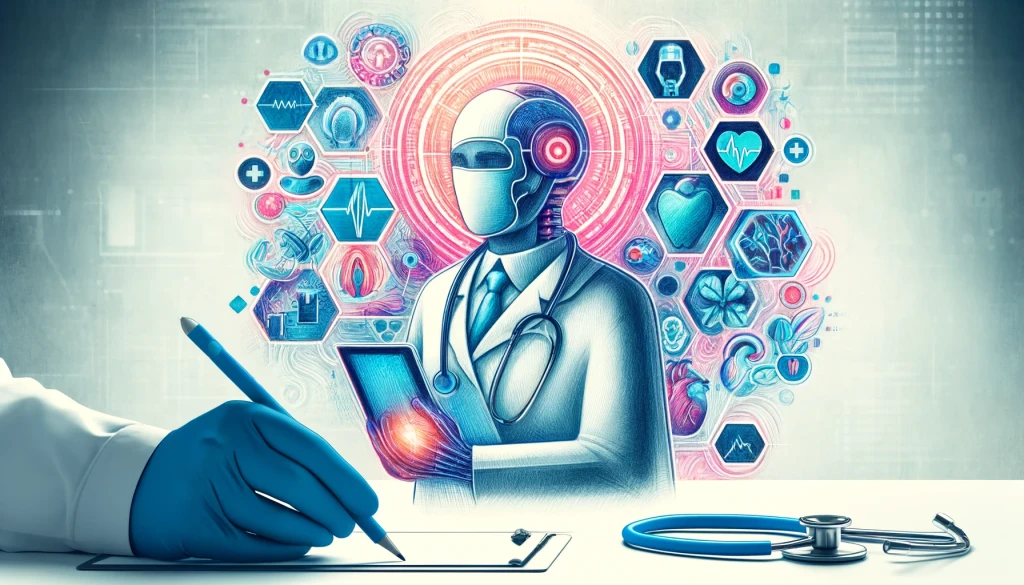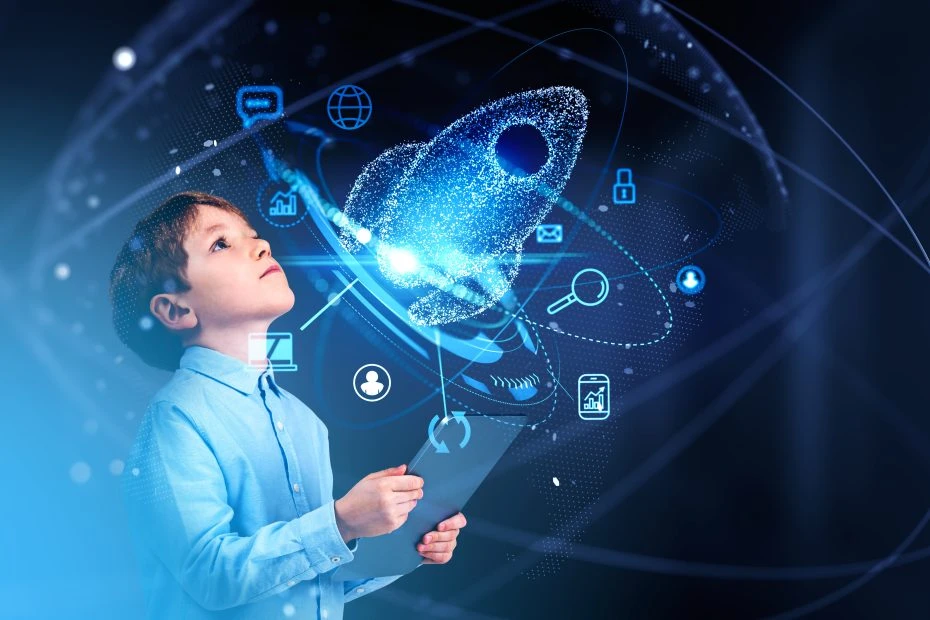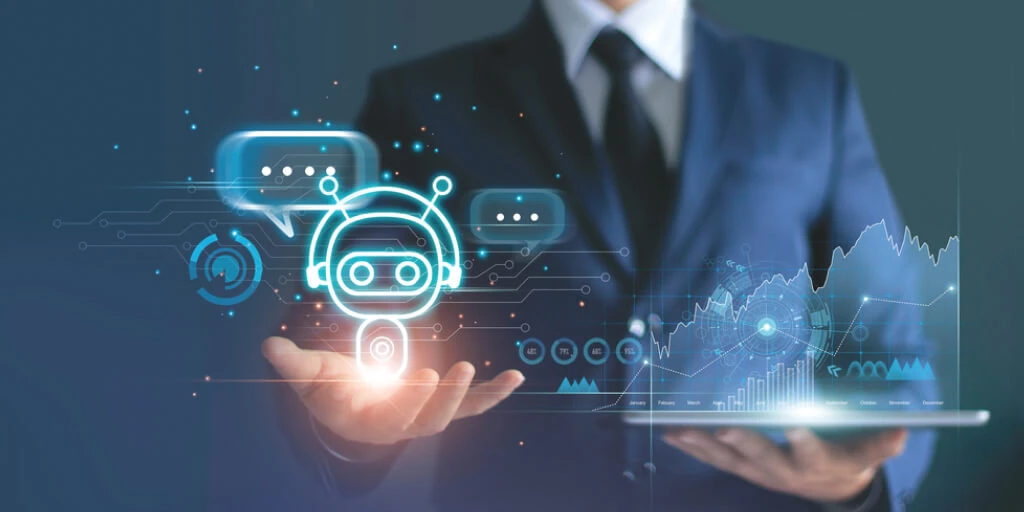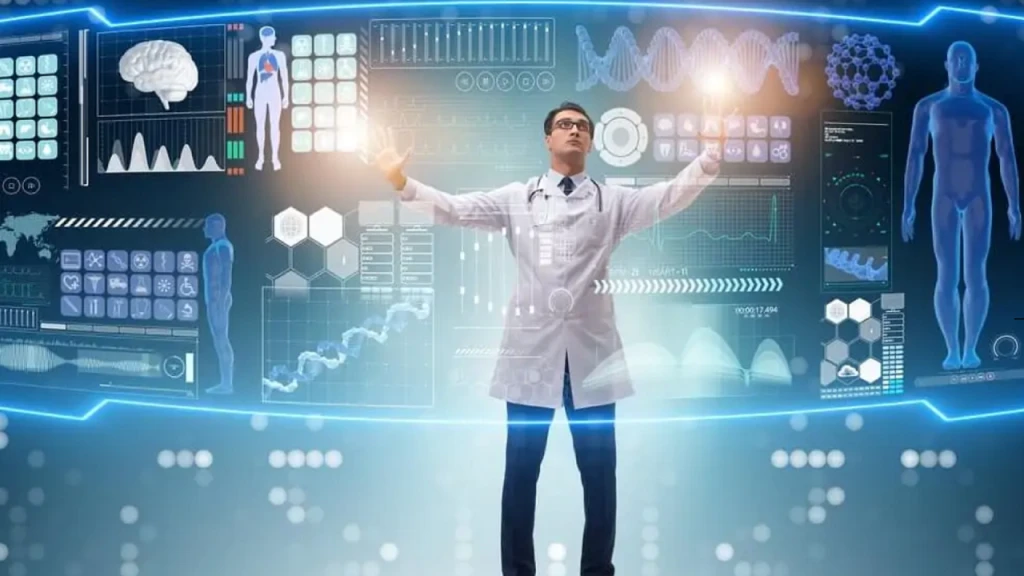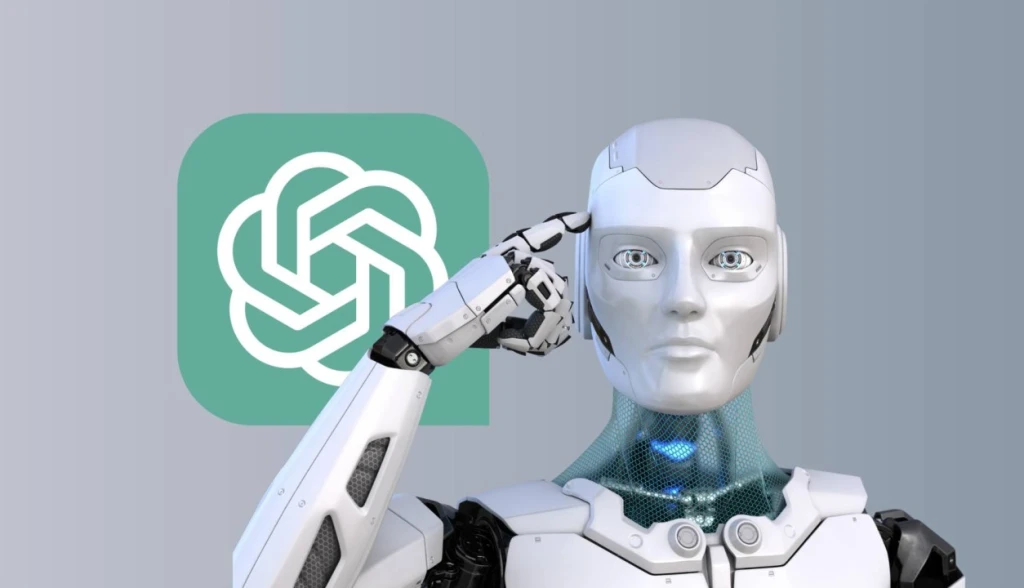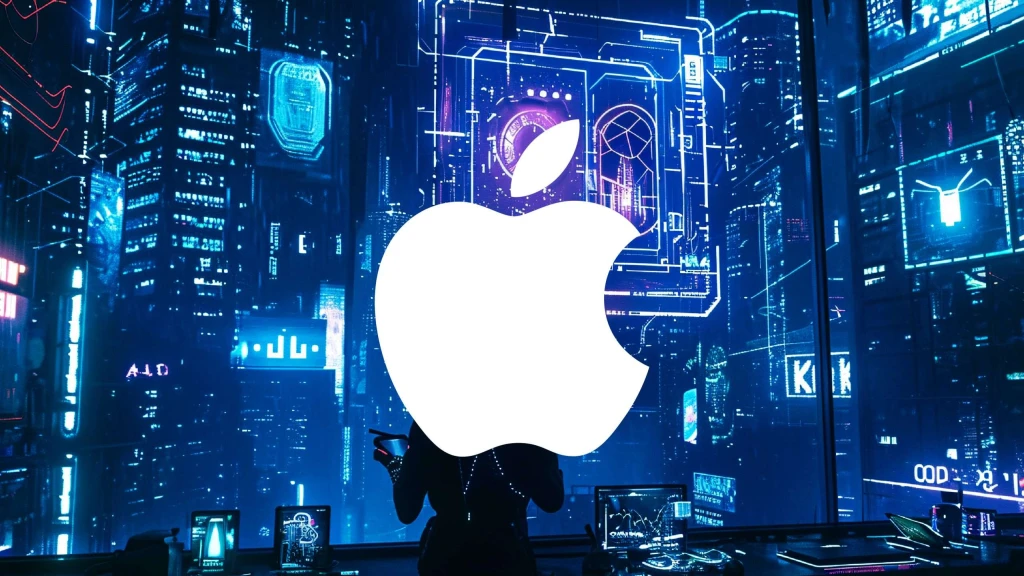Test AI on YOUR Website in 60 Seconds
See how our AI instantly analyzes your website and creates a personalized chatbot - without registration. Just enter your URL and watch it work!
Introduction: AI Revolutionizing Healthcare

AI in Medical Diagnostics
2.1- Medical Imaging & Radiology
AI analyzes X-rays, MRIs, and CT scans faster than traditional methods, improving early disease detection.
Tools like Google's DeepMind and IBM Watson assist radiologists in identifying tumors, fractures, and abnormalities.
2.2- Predictive Diagnostics
AI identifies disease patterns based on patient history and genetic data, predicting conditions before symptoms appear.
Early detection of conditions like Alzheimer's and Parkinson’s can lead to better treatment outcomes.
2.3- Pathology & Lab Testing
AI-powered microscopes help pathologists detect cancerous cells more accurately than manual examination.
AI in Personalized Medicine & Treatment
3.1- AI-Driven Drug Development
AI accelerates drug discovery by analyzing chemical compounds and predicting their effectiveness.
Pharma companies use AI to develop new treatments for diseases like cancer and COVID-19.
3.2- Precision Medicine
AI analyzes genetic information to recommend customized treatment plans for patients.
Oncology benefits from AI-driven therapies that target cancer cells while minimizing side effects.
3.3- AI in Chronic Disease Management
AI monitors patients with chronic conditions like diabetes and heart disease, providing real-time health recommendations.
Wearable devices and AI apps track patient data to detect health risks early.
AI-Powered Robotic Surgery
4.1- Minimally Invasive Surgeries
Robotic systems like the da Vinci Surgical System enable surgeons to perform precise, less invasive procedures.
AI stabilizes surgeon movements, reducing risks in delicate operations.
4.2- Automated Surgical Assistants
AI-powered robots assist with repetitive surgical tasks, allowing doctors to focus on complex aspects of procedures.
AI in Virtual Health Assistants & Telemedicine
5.1- AI Chatbots for Symptom Analysis
AI-powered chatbots like Ada and Buoy Health assess symptoms and provide medical advice before a doctor’s consultation.
5.2- Telemedicine & Remote Patient Monitoring
AI-driven platforms enable virtual doctor visits, reducing the need for in-person appointments.
Smart devices track vital signs and alert doctors to any health issues remotely.
Test AI on YOUR Website in 60 Seconds
See how our AI instantly analyzes your website and creates a personalized chatbot - without registration. Just enter your URL and watch it work!
AI in Hospital Management & Healthcare Operations
6.1- Predictive Analytics for Hospital Resource Management
AI predicts patient admission rates, helping hospitals allocate resources efficiently.
6.2- AI in Electronic Health Records (EHRs)
AI automates data entry and streamlines patient record management, reducing human errors.
6.3- AI-Powered Medical Billing & Insurance Claims
AI detects fraudulent claims and automates insurance processing, reducing delays in patient reimbursements.
Challenges & Ethical Concerns of AI in Healthcare
7.1- Data Privacy & Security Risks
AI relies on vast amounts of patient data, raising concerns about confidentiality and cyber threats.
7.2- Bias in AI Algorithms
AI models may inherit biases from training data, leading to potential disparities in medical diagnoses.
7.3- Dependence on AI vs. Human Judgment
AI enhances decision-making, but human expertise remains crucial in complex medical cases.
7.4- Regulatory & Legal Barriers
Governments must establish clear guidelines for AI use in healthcare to ensure patient safety and data protection.
The Future of AI in Healthcare
8.1- AI-Powered Drug Discovery
AI will further accelerate drug development, reducing the time needed to bring new treatments to market.
8.2- AI for Early Disease Prevention
Future AI systems will integrate genetic data and lifestyle habits to predict diseases with even greater accuracy.
8.3- AI-Powered Prosthetics & Bionics
AI-driven prosthetics will enhance mobility and functionality for individuals with disabilities.
Conclusion
As AI continues to evolve, it holds the promise of a healthier future—one where technology and human intelligence work together to improve lives.
